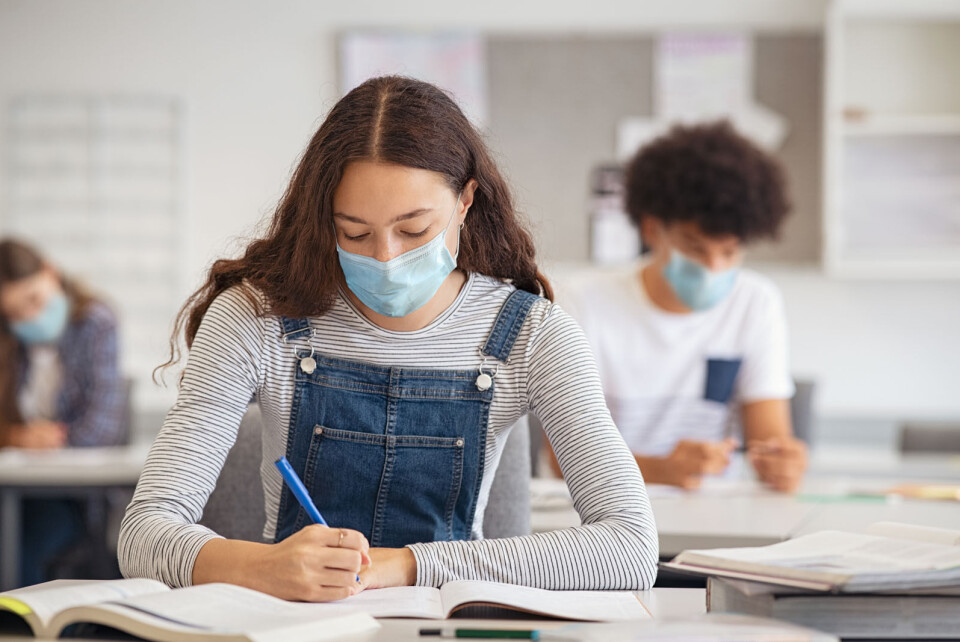-
Map: When are school holidays for the rest of the year in France?
The holidays are strictly demarcated by geographical zone
-
How France’s ‘back to school’ grant works and the amounts for 2025
The aid is means-tested and will increase by 1.7% this year
-
Covid-19 tests are still reimbursed in France - but not for long
Reimbursement for most will stop after the epidemic season, but some have criticised the move
Changes for the new school year in France
Greater emphasis on improving maths standards, more sport education and improving computer skills are among priorities - as well as catching up from Covid disruptions

The priority in French schools is helping with Covid catch-up, the Ministry of Education has announced, whilst a longer-term focus will be on reading, continuing to improve standards in maths, developing digital skills, completing the reform of the baccalauréat and introducing more sport.
There will, as usual, be evaluation tests for all pupils in CP (six- to seven-year-olds), CE1 (seven to eight years), sixième (11 to 12 years), and seconde (15 to 16 years). Parents might notice that pupils in other years are also tested as teachers assess who has fallen behind after interrupted schooling.
Half of pupils going into sixième cannot read aloud fluently, so this is high on the curriculum. In maternelle (nursery school) teachers will aim to read a story every day, parents should be lent books to continue at home, and if your child talks about the quart d’heure lecture, they are referring to 15 minutes a day of reading, either in silence or aloud, to be introduced whenever possible in primary schools.
Improving maths skills is also a priority, with the plan mathématiques, which has been in place since 2018, to be continued. It supports a more practical approach to solving maths problems. France has a bad reputation for maths. Data from the 2019 Trends in International Mathematics and Science Study placed it 41st out of 58 countries for CM1 (nine to 10 years).
Elsewhere, schools hope to draw on the 2024 Paris Olympics to encourage more sport, especially as Covid-19 meant many activities stopped.
Primary-age children might come home saying they are doing 30 minutes of exercise a day. This was trialled in some schools last year and is in addition to sports lessons.
Teachers who took part in the pilot scheme say it makes children fitter, and more alert in the classroom. The plan is to introduce it into as many schools as possible.
Covering IT, Pix is a government- funded organisation that has developed teaching methods to improve computer skills for the general public online. This is being used from cinquième (12-13 years) in collèges through to lycées.
There will also be more changes to the baccalauréat this year. The reform, which started in 2019, has been controversial from the start.
Instead of one week of exams in June, 60% is based on exams and 40% on continual assessment, most of which, in the original plan, was from common national tests and 10% from school reports (bulletins scolaires).
Now these tests are to be scrapped and 40% is to be based on school reports, which include results of tests set by individual teachers throughout the year (contrôles continus).
The man who designed the new Bac, Pierre Mathiot, told The Connexion it was common for reforms on this scale to have teething problems.
“It may take years for it to settle down. When we held the new national tests, we immediately understood it was very difficult to organise. We have experience of basing results on bulletins scolaires from the last two baccalauréats, when exams were disrupted by Covid.”
Seven unions, including the biggest secondary school union SNES-FSU, say this will put enormous pressure on teachers and create inequalities because schools do not assess pupils in the same way.
Mr Mathiot says teachers will get training to ensure all marks are as uniform as possible.
“Don’t forget that 60% of the Bac will be judged on national exam results,” he added.
“Parcoursup [the further education applications body] already takes school reports into account when choosing students, because the exam results come later.
“The new Bac is fairer because it does not depend on students learning lessons by heart at the last minute.
“Instead, they will learn progressively and retain information better. It is the difference between a sprint at the end and an endurance race.”
Related stories
A guide to starting at school in France
Back to school: Guide to Covid rules for parents and pupils in France
























